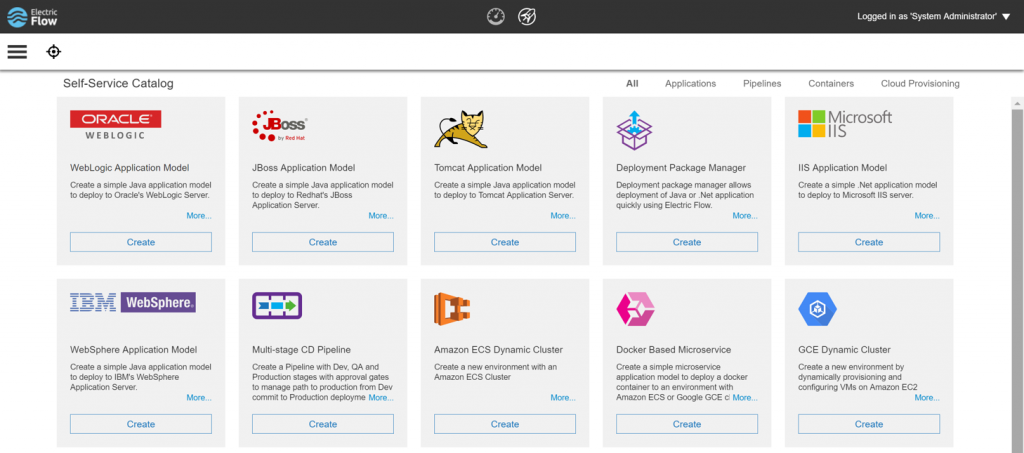
With a new customizable self-service catalog and the ability for teams to “bring their own processes” into one managed DevOps toolchain, the release of ElectricFlow 7.3, Electric Cloud’s DevOps release automation and continuous delivery platform, makes it easy for developers and operations to ship software the way that works best for their DevOps team.
According to Anand Ahire, general manager of DevOps release automation at Electric Cloud, when it comes to starting the DevOps or automation journey, some of the repeating concerns that Electric Cloud has noticed is centered around getting a grasp on automation processes, connecting automation to the top KPI or business metrics, and getting the visibility and consumerization that comes with a good continuous delivery process.
To help teams with these automation and software development challenges, ElectricFlow 7.3 now includes a customizable self-service catalog with out-of-box templates, a way for developers to define applications, environments, and dependences, and release and deploy analytics dashboards for visibility.
The Self-Service Catalog in ElectricFlow 7.3 is a new, out-of-the-box best practice content to help users get started with their DevOps automation quickly, according to Ahire. Users have the option to choose from a catalog of templates, and get started with new application models, practices, processes, environments, and pipelines or workflow.
Users can also create their own best practice content and promote it to encourage standardization. However, it’s flexible to work with whatever tools they have now, and in the future.
“We are shipping out-of-box content so users can get started very quickly, but not put a straightjacket on them in case they want to expand the best practices to suit their processes,” said Ahire. “As it comes to this (release) we have out-of-the-box content, but with a first-of-its-kind self-service catalog.”
ElectricFlow users will also have access to the deployment package, which easily and predictably onboards applications from continuous integration and other processes. The deployment package treats the pipeline like a product, and makes it easy for developers to create and deploy applications.
Metrics matter to DevOps teams, which is why ElectricFlow 7.3 comes with an analysis layer to provide insight on the health of releases, how an organization is performing, and it allows teams to track status and measure efficiency and risk for pipelines and releases.
Now, ElectricFlow allows developers to automate the generation of applications, environments, and pipeline models. Developers also have access to new plug-ins like Jenkins-EC, which allows Jenkins to publish artifacts or kick off EC continuous delivery pipelines. The EC-Parasoft plug-in is available also, as well as updates to the Microsoft IIS, JBoss, Microsoft Azure, Git, and HP Quality Center plug-ins.






